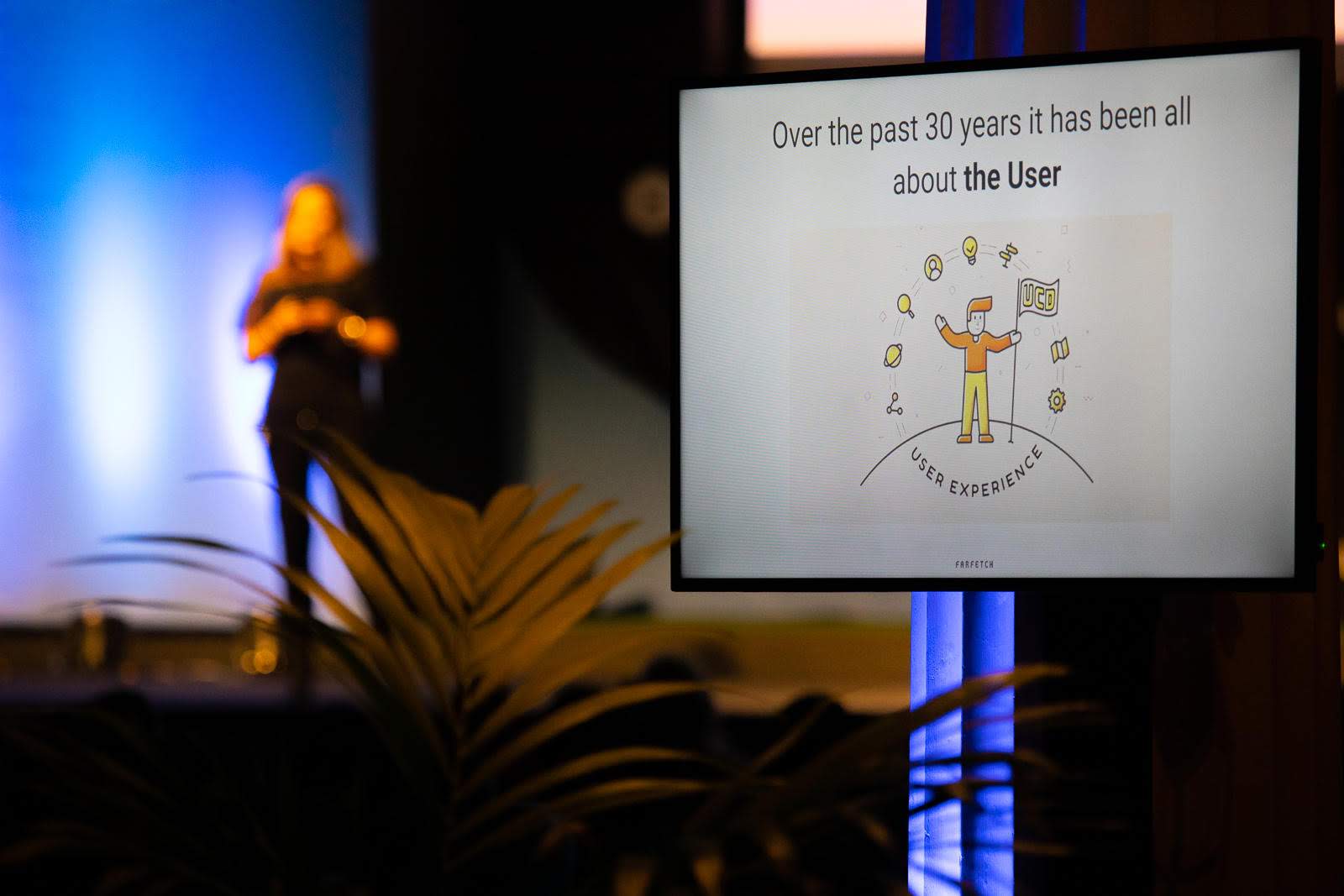“User centered design is obsolete”

User centered design (UCD) is one of the more popular beliefs in the design and UX industry at the moment - focus on your users (personas), their goals (jobs to be done) and then design solutions to solve these needs. Seems about as non-contentious as you can get but not according to Yolanda Martin, Head of Platform Design at Farfetch, an online retailer specialising in luxury brands.
“User centered design is obsolete, it's just not enough anymore”.
Yolanda has the pedigree to back up her statements with over 10 years of experience designing platforms at companies like Canonical, Ubuntu, Hearst magazines as well as in her current role at Farfetch. So what is the problem with UCD?
What is wrong with UCD?
UCD focuses on an individual problem instead of looking at the bigger picture where there can be large and unanticipated side effects.
“Designers must have a full and wider understanding about the impact of their products on the wider ecosystem instead of solely focusing on the needs of end-users”
Why is Ecosystem Design Important?
As Yolanda explains: “Our world is going through a paradigm change. We need to look at the world as a complete entity and we cannot base our design solely on individual needs”.
Using a city as an analogy, Yolanda demonstrates that within a city there are layers of services and technologies that are needed in order for a city to function. At the base layer you have the networks - roads, water, electricity. These facilitate the businesses in the services layer who provide services to the consumer layer. If we focus on just one layer (e.g. the end consumer) and it impacts any of the other layers like businesses or infrastructure, then the entire ecosystem can be drastically impacted. Designers need to consider the wider impact to the products they create so they don’t throw out the whole ecosystem.
Yolanda highlights a few different examples in her talk - coffee pods and Uber. Coffee machines and pods make it so easy and convenient for users, but the designed disposability wreaks significant environmental damage. Uber makes it really easy to hail a car but it has increased traffic and the associated release of carbon in major cities. Cities are starting to regulate both examples by banning coffee pod machines or restricting the Uber licences to try to tackle the negative side effects.
As an industry do we want to wait for legislation to undo the impacts of our decisions or do we want to proactively solve the problems ourselves?
Moving from Individual to Ecosystem Design
Saying something is wrong without giving alternatives isn’t much use. Luckily Yolanda does not disappoint as she offers some suggestions for teams:
Look beyond the user
Even if you are designing a single feature, you need to bear the complete value chain in mind and you need to understand where and how the value is created. By thinking about all of the stakeholders within the ecosystem, and not just the individual persona, you can shift from user centered design to ecosystem design. Some of the key stakeholders to keep in mind include:
- Producers: the suppliers and service providers who supply services to all participants
- Consumers: the people purchasing the products and services
- Aggregators: the people who connect supply and demand
- Governors: the people who shape the ecosystem and provide their inputs for product and service development
Each of these players, irrespective of the industry, plays a crucial role. If one falls out or is affected in unexpected ways, the entire ecosystem will be affected.
Think of the long-term impact
We are responsible for the designs we make, including the impacts of our design on all different levels. Brainstorming the negative ways a product can be used or the negative side-effects can be enlightening. Some areas to focus on in your brainstorming include:
- The environmental impacts
- The socio-economic impacts
- The psychological impacts
If you want to learn more I’d suggest watching the video as Yolanda goes into much more detail during her talk.
There is nothing new under the sun
What Yolanda is advocating isn’t new. People who have worked on complex development problems or organisational change initiatives will recognise this as systems thinking; the holistic approach to analysing how the parts of a system interrelate and impact each other over time. This is the beauty of cross functional teams - by helping people to get out of their current domain and see how other people are solving similar problems we can really start to accelerate progress in product delivery.
Rory Madden
FounderUXDX
I hate "It depends"! Organisations are complex but I believe that if you resort to it depends it means that you haven't explained it properly or you don't understand it. Having run UXDX for over 6 years I am using the knowledge from hundreds of case studies to create the UXDX model - an opinionated, principle-driven model that will help organisations change their ways of working without "It depends".
Get latest articles straight to your inbox
A weekly list of the latest news across Product, UX, Design and Dev.

